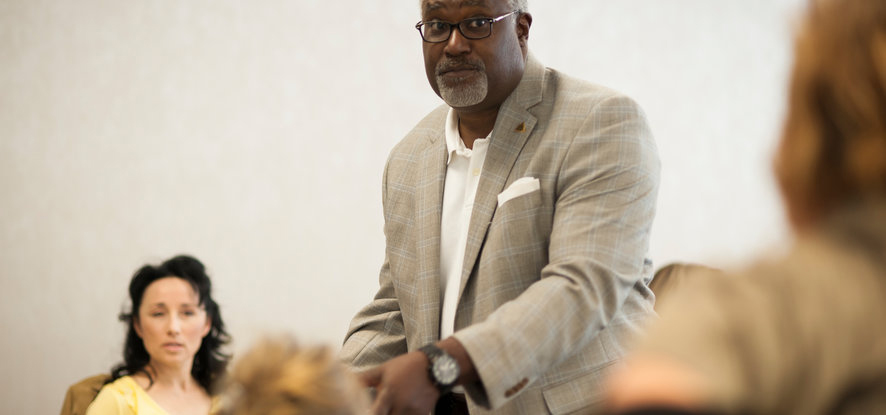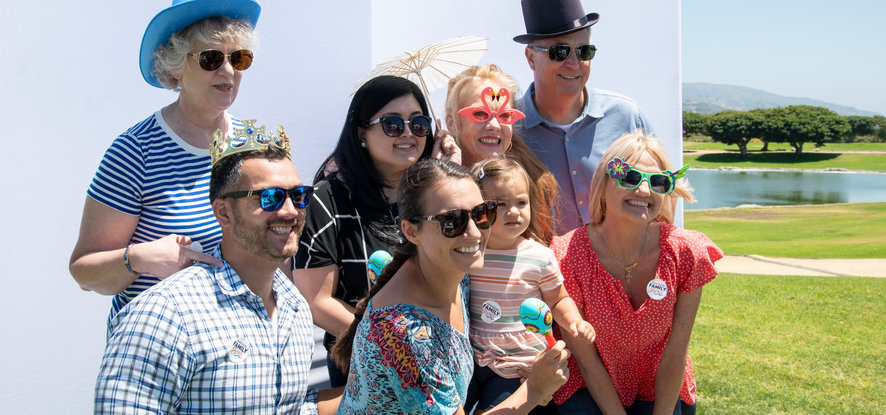Clinical Psychologist Educational Requirements

Engaging in a career within the mental health field can be remarkably fulfilling. Should you possess a passion for fostering connections among individuals and aiding in the enhancement of their quality of life, contemplating the pursuit of a licensed psychologist role specializing in marriage and family therapy is worth considering.
Clinical psychology involves the examination of human behavior, encompassing the diagnosis, treatment, and prevention of psychological and behavioral disorders. To become a clinical psychologist, one must adhere to Clinical Psychologist Educational Requirements which includes establishing a robust educational foundation, gaining hands-on clinical experience, and maintaining an unwavering commitment to continuous learning.
Exploring the specific stipulations within the "Clinical Psychologist Educational Requirements" serves as the bedrock for embarking on this professional journey. These requirements delineate a comprehensive understanding of the degree prerequisites, immersive field experience, as well as the obligatory licensing and certifications crucial to initiating a rewarding career in psychology. Delve deeper to acquire insights into the educational milestones that are integral for aspiring Clinical Psychologists.
What is Clinical Psychology?
Clinical psychology is a subfield within the field of psychology focused on the diagnosis, treatment, and prevention of mental, emotional, and behavioral disorders. It’s an integration of the science of psychology, theory, and clinical knowledge aimed at understanding, preventing, and relieving psychologically-based issues.
The ultimate goal of clinical psychology is helping people lead happier, more functional lives by addressing a wide array of mental health issues ranging from anxiety and depression to more severe conditions like schizophrenia and bipolar disorder.
Clinical psychology includes specialized areas like child psychology, marriage and family therapy, substance abuse counseling, and many more.
What Do Clinical Psychologists Do?
Clinical psychologists are trained to assess and diagnose psychological disorders, from emotional disorders like depression to behavioral disorders like ADHD. Once a diagnosis is made, they design personalized treatment plans that may include psychotherapy, medication, or a combination of both. They may offer psychological testing, counseling, and education with the goal of helping people manage and overcome their conditions.
Clinical psychologists can work in a variety of settings. They may work in mental health clinics, hospitals, outpatient clinics, or private practices. Additionally, they may work in academic and research settings, focusing on developing new treatment methods or studying the complexities of psychological disorders. They work with other healthcare providers, social workers, and families to offer a comprehensive approach to mental health care.
Clinical psychologists—especially those who specialize in marriage and family therapy—also provide mental health services for individuals dealing with life stresses such as relationship issues, work stress, or major life changes like divorce or loss of loved ones. Others specialize in specific areas like sports psychology, school psychology, or substance abuse treatment.
Clinical Psychology With an Emphasis in Marriage and Family Therapy
Marriage and Family Therapy (MFT) is a subset of clinical psychology that focuses on relationships. If you enjoy working with families and want to help others live their best lives, this could be your area of specialization. They often work with families going through challenging transitions like divorce, or couples struggling with communication issues.
Their main role is to facilitate conversations, identify underlying issues, and provide targeted interventions. They assess the emotional and psychological well-being of each family member, then work to resolve conflicts and promote better mental health for everyone involved. The goal is to strengthen relationships, whether that's between spouses, parents and children, or siblings.
Psychologists in this specialization can work in a variety of settings, such as private practices, community mental health centers, or even hospitals. Some licensed marriage and family therapists (LMFTs) also offer online therapy services, which is a growing field in today's digital world.
This career path requires a unique skill set, blending psychological theory with the right set of soft skills that allow you to connect with people. So if you have a passion for helping people improve their most important relationships, specializing in Marriage and Family Therapy might just be the perfect career path.
How Do You Become a Clinical Psychologist?

Becoming a practicing clinical psychologist requires specific degrees in psychology, hands-on clinical experience, and a strong commitment to the profession. Here's a rundown of what you'll need in order to .
Education Requirements
Bachelor’s Degree
First, you'll need a strong educational foundation, usually in the form of an undergraduate degree in psychology. An undergraduate program in a related field such as sociology or human development can also provide a strong educational base. Your bachelor's degree serves as an introduction to the broader field of psychology and its subdisciplines.
You'll cover essential topics such as cognitive psychology, developmental psychology, and abnormal psychology. You'll also get an introduction to research methods and statistical analyses, which are skills that will be crucial in your advanced studies and professional work. Some degree programs also offer introductory courses in specialized areas like child psychology, forensic psychology, or behavioral disorders, but you'll typically dive deeper into those with an advanced degree.
Graduate Degrees and Specializations
A Master's degree (MA) in Psychology is a great next step, but it's worth noting that most clinical psychologists also hold a doctoral degree, such as a Ph.D. or Psy.D. in Clinical Psychology. These advanced degree programs are comprehensive and intense, typically requiring four to six years of full-time study.
This is where you'll get specialized instruction. You'll dive deeper into psychological theories and methodologies but also have the opportunity for extensive clinical experience. This is your opportunity to work directly with patients in supervised settings and gain clinical hours that are required for licensure.
You'll learn to assess and diagnose mental health issues, create effective treatment plans, and get hands-on experience in providing psychological services.
MA in Clinical Psychology With an Emphasis in Marriage and Family Therapy
Pepperdine University's MA in Clinical Psychology with an emphasis in Marriage and Family Therapy degree program is designed to fast-track you into a rewarding career as an LMFT or LPCC in California. The program takes a holistic approach, addressing not just clinical skills but also the social and psychological effects of socioeconomics on well-being. With over 130 practicum sites, the program offers extensive hands-on training. You can complete all requirements in just two years, supported by a dedicated training staff every step of the way. Plus, the program sets you up to meet all educational requirements for licensure exams. It's a comprehensive package for those eager to blend psychological expertise with a focus on relationship dynamics.
Training Requirements
Internship Experience
To become a well-rounded clinical psychologist, hands-on experience is a must. Internships are your introduction to the real-world practice of psychology. You'll be placed in mental health centers, hospitals, or even specialized settings like schools or corporate environments. Here you work side-by-side with experienced mental health professionals, gaining insights into the day-to-day responsibilities and challenges of the job.
You'll be actively involved in various aspects of patient care—conducting assessments, participating in treatment planning, and possibly even providing short-term therapy under supervision. Each of these experiences contributes to your clinical hours, which are required for licensure. More importantly, internships allow you to translate theory into practice. You'll be handling actual cases, which means your decision-making, ethical reasoning, and interpersonal skills are put to the test. The internship transforms you from a student of psychology into a practitioner ready for the next level of professional responsibility.
Field Supervision
Field supervision consists of working under the direct oversight of a licensed and experienced clinical psychologist. During this period, you'll delve into more specialized areas like behavioral disorders, substance abuse, or whatever niche aligns with your career goals.
The focus here is on refining your clinical skills, from diagnostic accuracy to effective treatment planning and ethical practice. You'll take on more responsibilities, potentially even managing a caseload, but always under the supervision of an experienced professional. Field supervision is also where you can define your areas of interest and build a network that will support your future career. This period of supervised practice is not just a licensure requirement but an opportunity for personal and professional growth.
Licensure
In the United States, all states mandate that psychologists must be licensed to practice. The specifics might differ a bit from state to state, but generally, you'll need a doctoral degree in psychology, completion of an accredited internship program, and a set number of supervised clinical hours under your belt. Finally, you'll need to pass your licensure exam. You can find out more about California licensure requirements here.
Licensure assures the public that you meet the qualifications to provide psychological services. It's a testament to your training, skills, and ethical standing. Passing the licensure exam proves you've ready to practice psychology, and it's often a prerequisite for many employers. Most states require ongoing continuing education to maintain your licensure and ensure you stay current in your field.
Board Certifications
If you're looking to really stand out, you should also consider board certification. These are optional credentials that signify specialized skills and knowledge in particular areas of clinical psychology. Earning a board certification involves additional training and usually an examination process.
Board certifications show that you are committed to continuing to learn, and they also let clients and potential employers know that you have more experience. In the job market, it can make you more competitive and even help you make more money.
Being board-certified also usually means you know more about the newest research and methods in your specialty, which makes the care you give better. And even though it takes more time and money, the benefits are almost always worth it.
Questions People Ask Often About Becoming a Clinical Psychologist
I want to become a clinical psychologist. How long does it take?
It usually takes four years to get an undergraduate degree, another four to six years to get a doctoral degree, and more time for internships and supervised clinical hours.
Frequently Asked Questions About Becoming a Clinical Psychologist
How long does it take to become a Clinical Psychologist?
Typically, it takes about four years for an undergraduate degree, another 4-6 years for a doctoral program, and additional time for internships and supervised clinical hours.
How much money does a Clinical Psychologist make?
Average salaries for clinical psychologists in California generally range from $150,000 to $300,000 annually.
What conditions does a Clinical Psychologist treat?
Clinical psychologists are trained to treat a variety of mental health issues, including anxiety, depression, behavioral disorders, and psychological disorders. They also offer specialized treatment for conditions like substance abuse.
Frequently Asked Questions About Becoming a Licensed Marriage and Family Therapist

What are the educational requirements for becoming an LMFT?
To become an LMFT, you'll need a Master's degree in Marriage and Family Therapy or a related field. This is followed by a period of supervised clinical experience, usually about 2,000 to 4,000 hours, depending on the state.
What type of clinical psychology jobs can I get with an MA in Clinical Psychology with an Emphasis in Marriage and Family Therapy?
You could work as a Marriage and Family Therapist, Licensed Professional Clinical Counselor, or School Counselor. Your expertise would also be valued in social services, clinical supervision, or the growing field of online therapy.
Can LMFTs diagnose and treat mental health disorders?
Yes, LMFTs are qualified to diagnose and treat a range of mental and emotional disorders. They often use a variety of therapeutic techniques suited to relational dynamics.
What's the difference between an LMFT and a clinical psychologist?
Both professionals can diagnose and treat mental health issues, but LMFTs focus more on relational dynamics. Clinical psychologists may have broader training in a range of psychological services and typically need a doctoral degree.
Do you need a doctoral degree to become a LMFT?
No, you don't need a doctoral degree to become a Licensed Marriage and Family Therapist (LMFT). The educational requirement for this career path is typically a Master's degree in Marriage and Family Therapy or a closely related field.
Start Your Career as a Clinical Psychologist With an MA in Clinical Psychology With an Emphasis in Marriage and Family Therapy at Pepperdine University
If you're drawn to the field of psychology and want to become a clinical psychologist with a specialized skill set in Marriage and Family Therapy, Pepperdine University's Master's in Clinical Psychology with an Emphasis in Marriage and Family Therapy program is the first step towards your new rewarding career. This program combines rigorous academic study with hands-on clinical experience in a supportive learning environment.
Pepperdine's program doesn't just stop at preparing you educationally; it takes you across the finish line by meeting all the requirements for LMFT or LPCC licensure in California. Find out more about the program or submit your online application to get started.